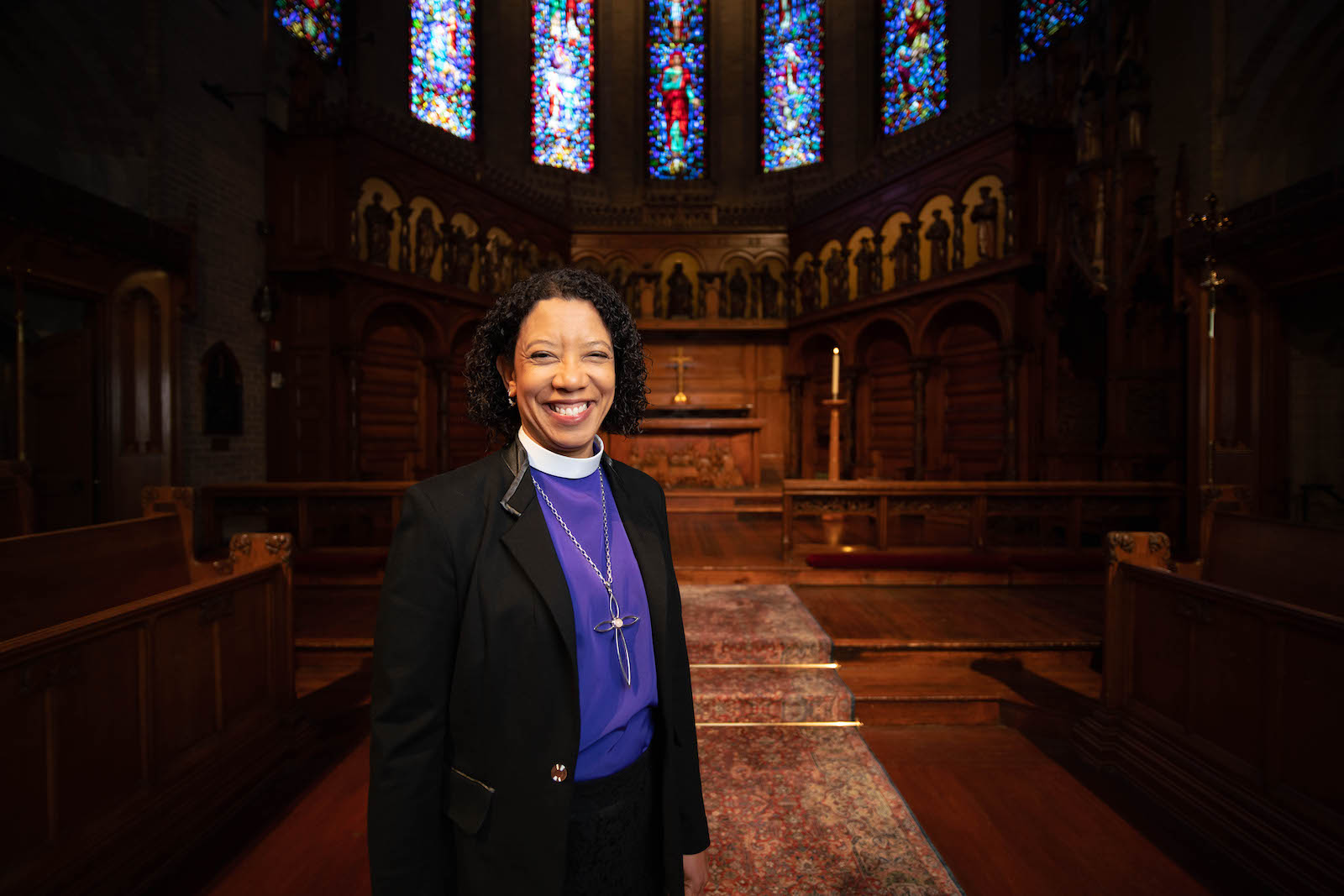The Local newsletter is your free, daily guide to life in Colorado. For locals, by locals.
On May 18, the Reverend Kimberly (Kym) Lucas will become the first female bishop, as well as the first black bishop, in the Episcopal Church in Colorado since its establishment in 1887. While Episcopalians make up only 2 percent of the state’s religious demographics, Lucas’ election is a big deal for a denomination that proclaims progressive values—most notably, their open and affirming stance on LGBTQ people—yet is led by a standing committee (the authoritative board in the diocese) that is exclusively white.
Lucas will be leading nearly 30,000 active members across 96 worshipping communities throughout the state. While the Episcopal Church in Colorado was unable to supply state-specific data about its demographic makeup, Pew Research Center reports that nationwide, the Episcopal community is about 90 percent white, 4 percent black, and 2 percent Latino.

In Colorado, a steady number of Latinos are becoming Episcopalians and initially joining predominantly white parishes that are having difficulty accommodating these new faces, says Anthony Suggs, director of advocacy and social justice for the Episcopal Church in Colorado. While a situation like this presents challenges for Lucas, she’s served as a clergy in homogenous and diverse Episcopal communities alike in North Carolina, Pittsburgh, and most recently, Washington D.C. As Colorado’s bishop, she is eager to lead the state in the hard, yet necessary conversations on race.
We caught up with Lucas prior to her ordination to talk about how she plans to do just that.
5280: What has your experience been like, as a minority in the Episcopal Church?
Reverend Kym Lucas: As the first black woman coming through the ordination process in the diocese in North Carolina, I was confronting assumptions that were being made about my intellect that I slayed all the time.
[In one instance,] I was asked to fill in for another priest at my younger sister’s church and one of the people at the church comes in and says, “Surely, you’re not going to wear those earrings?!” I had some small hoop earrings on, and I said, “No, I’m actually going to wear those earrings,” and I pointed to my sister who had some long dangly earrings on. I immediately stopped and swapped out my earrings with hers, to this woman’s horror.”
With more Latinos becoming Episcopalians in Colorado, what are some barriers the diocese needs to overcome to better minister to this population?
[A starting point is] recognizing the assumptions we make about culture. A lot of the cultural assumptions of whiteness and Western cultural norms being ‘better than’ are things that we, as a church, struggle with. I remember when I was a young priest, someone said, ‘Well there are certain things that are Episcopalian. You know, you like to read, you like to listen to classical music.’ I just started laughing. I said, ‘OK, I like Yo-Yo Ma as much as the next person and at the same time, that’s not my world.’ Digging into those assumptions—that’s what it means to be Episcopalian.
How do you unpack those assumptions?
I think I’ve become a big fan of the science of confirmation bias—how we so strongly identify with clan and kin. We build worlds in which our assumptions are reinforced. In the places where people say, ‘Oh yes, we’re going to open our doors to Latinos,’ those collaborations falter a lot because the basic assumptions and understandings [of race] haven’t been addressed.
How should conversations on race and bias be approached in the church?
To speak the truth in love, to be able to call those things out, to say, “You know, I know you think that’s really nice, but talking about my earrings while we’re trying to do church is really not the best conversation to have right now.” That’s always a challenge in church, and I think we err to the side of not talking about it. And I think for our longevity and I think for our future and for us, living into what I think God wants us to become is going to require that.
What else can be done to support communities of color within the Colorado Episcopal Church?
[We need to] support people from other communities as they feel called to leadership. Still, it’s important to raise awareness [on race] because if you raise up leaders [of color] and you have no churches that are going to accept them, you haven’t done the work. It’s important to do both at the same time.
Amid the challenges, where do you find encouragement?
That they’ve called somebody who’s looked like me to be their bishop. I do believe that I, being who I am and bringing my experience of faith, my experience of church, and my experience of leadership, will be a part of forming who the Episcopal Church of Colorado is as we grow together. And I think with groups like the Race Task Force [which studies issues involving race and class in the Colorado Episcopal Church and develops solutions], they already began that work, which is really powerful and amazing to me.
Do you see the Colorado Episcopal Church being a leader for other local mainline Protestant denominations dealing with similar issues?
Well I think the Episcopal Church in Colorado has a lot of experience and one of those experiences, quite frankly, was weathering the struggle about full inclusion of gay, lesbian, and transgender people in the church. That was a hard and painful struggle for much of the Episcopal Church. But I think what it has given us is the gifts and tools to be in conversation with other denominations that are going to hit that place. I think the Colorado Episcopal Church definitely has some leadership skills and wisdom to offer in that area.








